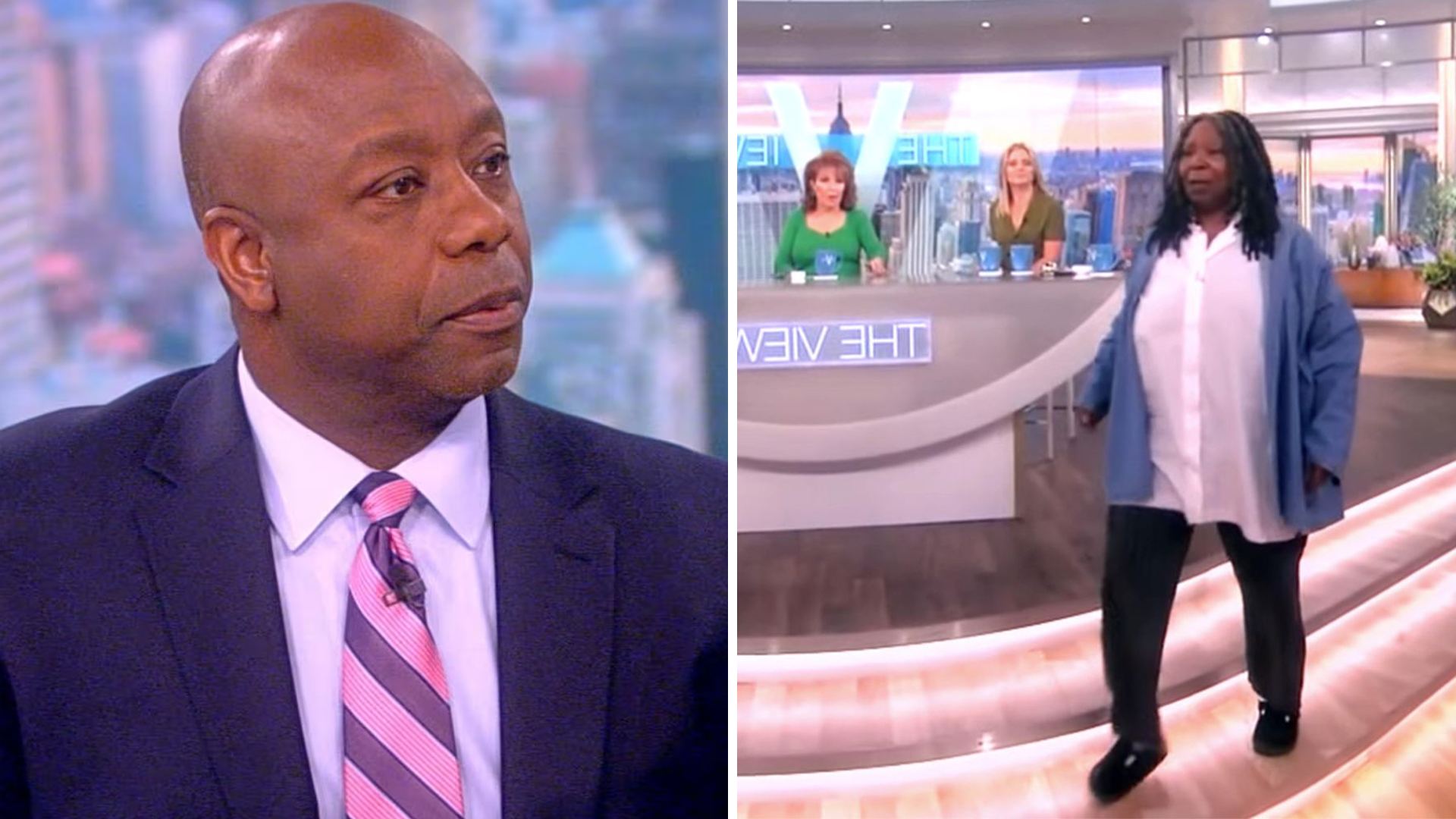Breaking: Whoopi Walks Out Crying After Confronting Tim Scott on ‘The View’.
In an episode of “The View” that will be remembered for its raw intensity and emotional depth, Whoopi Goldberg, the show’s co-host and a revered figure in entertainment, left the stage in tears following a poignant exchange with Senator Tim Scott.
The confrontation, marked by its candidness and charged atmosphere, not only spotlighted the personal convictions of both individuals but also underscored the complex dynamics of political and social discourse on mainstream television.
The episode began as any other, with the panel prepared to dive into the day’s hot topics. However, the atmosphere shifted palpably when Senator Tim Scott, a prominent figure known for his distinct perspectives on race, politics, and society, joined the table.
What was anticipated to be a routine discussion evolved into a moment of television history that viewers would not soon forget.

The conversation took a turn when Whoopi, known for her no-holds-barred approach to dialogue, questioned Senator Scott on his stance regarding systemic racism in America—a topic that has been at the forefront of national conversation.
Scott, representing South Carolina and the only African American Republican in the Senate, has often offered views that diverge from the consensus among many African Americans, including those expressed by Goldberg.
As the exchange intensified, it became clear that this was not merely a debate about policy but a profound clash of personal beliefs and experiences.
Whoopi, leveraging her platform and voice, challenged Scott with pointed questions and, at times, palpable frustration.
Scott, for his part, remained steadfast in his positions, articulating his viewpoints with a calmness that contrasted sharply with the emotional charge of the conversation.
The moment reached its zenith when Whoopi, visibly moved and perhaps overwhelmed by the weight of the discussion, made the decision to leave the set. Her departure was not just a physical act but a powerful statement—a manifestation of the pain and frustration felt by many when faced with seemingly insurmountable divides in understanding and empathy.
The aftermath of the confrontation left the audience and remaining panelists in a state of reflection. The silence that followed Whoopi’s exit spoke volumes, serving as a poignant reminder of the emotional toll that such deeply personal and divisive topics can exact on individuals, even those as experienced and resilient as Goldberg.
This episode of “The View” will undoubtedly be dissected and discussed in the days to come, not only for the dramatic moment of Whoopi’s departure but for the broader implications of the conversation. It highlighted the challenges of bridging ideological divides, the emotional labor involved in discussing race and inequality, and the role of media platforms in facilitating these critical conversations.
Whoopi’s walkout is a reminder of the human element in political discourse. It brings to the forefront the reality that behind the debates and disagreements are real people, with genuine emotions and experiences that shape their views. It also raises questions about the responsibility of public figures and media outlets in fostering understanding and empathy among a diverse audience.
The incident also underscores the importance of continuing to engage in tough conversations, even when they lead to discomfort or emotional responses. It is through these dialogues that society can hope to move forward, challenging assumptions, and working towards mutual understanding and respect.
In reflecting on Whoopi Goldberg’s emotional exit, viewers are left to ponder the complexities of communication in an increasingly polarized world. The episode serves as a powerful case study in the dynamics of public discourse, the impact of television as a medium for debate, and the personal toll that such engagements can take on those brave enough to confront the most pressing issues of our time.
As “The View” moves forward, and as Whoopi Goldberg no doubt returns to the table, the conversation with Tim Scott will remain a pivotal moment in the show’s history—a reminder of the power of television to not only entertain but to provoke thought, elicit emotion, and perhaps, in its most aspirational moments, to enlighten.